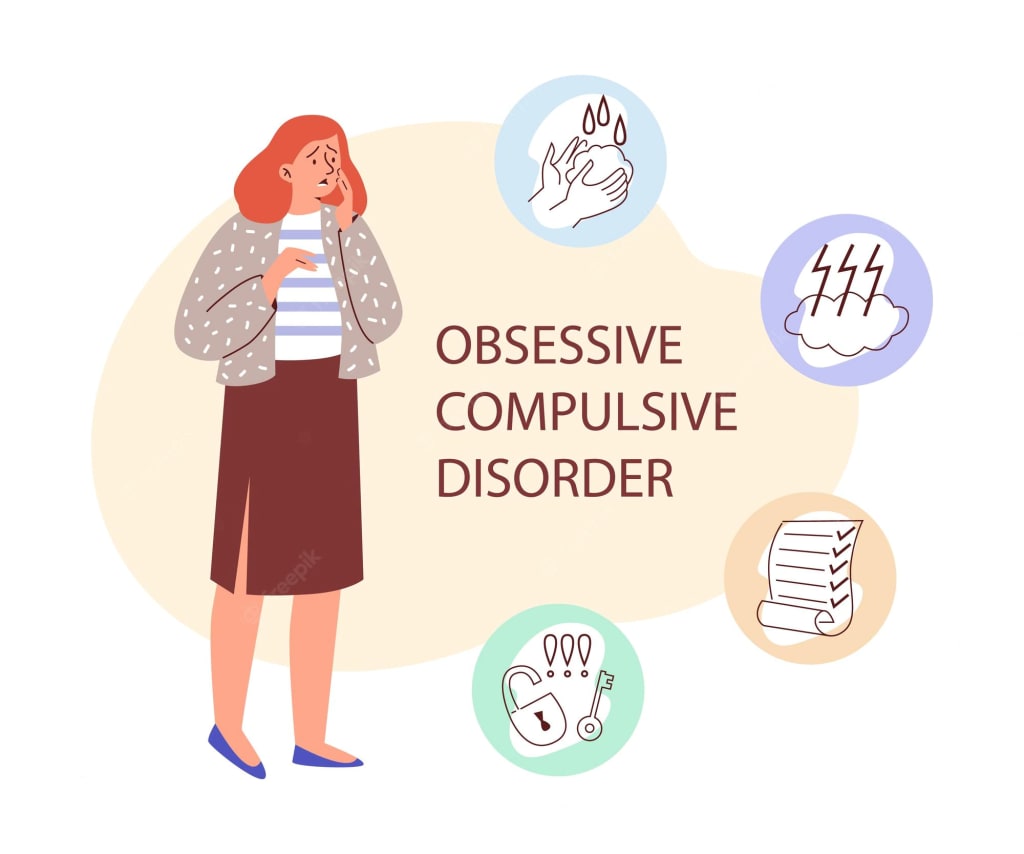The Role of Medication in OCD Treatment
The Role of Medication in OCD Treatment

Obsessive-Compulsive Disorder (OCD) is a mental health condition marked by persistent, unwanted thoughts (obsessions) leading to repetitive behaviors (compulsions). As a psychologist in Delhi, my experience has offered me firsthand insight into the various treatments available for managing this debilitating condition. Among these, medication stands as a vital tool in comprehensive OCD management.
The pivotal role of medication in OCD treatment can't be overstated. Drugs, especially Selective Serotonin Reuptake Inhibitors (SSRIs) and Tricyclic Antidepressants (TCAs), have proven effective in managing OCD symptoms. These classes of drugs work by altering the chemical balance in the brain, especially the neurotransmitter serotonin, known for its role in mood regulation and anxious thoughts.
SSRIs such as fluoxetine (Prozac), fluvoxamine (Luvox), and sertraline (Zoloft) are commonly prescribed for OCD. They enhance serotonin activity, helping to quell the anxiety and obsessive thoughts that fuel compulsive behaviors. Research suggests that up to 70% of individuals with OCD see a reduction in their symptoms with SSRI use.
However, it's important to note that the effectiveness of medication in managing OCD varies significantly between individuals. While some patients find substantial relief, others might experience only a slight decrease in symptoms or struggle with side effects. Additionally, the therapeutic effect of these drugs is not immediate. It can take up to 8-12 weeks for the full benefits to manifest, requiring a significant commitment from the patient.
In cases where SSRIs are not effective, TCAs, particularly clomipramine (Anafranil), can be prescribed. Although equally or sometimes more effective than SSRIs, TCAs are often considered a second-line treatment due to their potential side effects such as dry mouth, blurred vision, constipation, and difficulty urinating.
While medication is an essential component of OCD treatment, it is not a standalone solution. Research and clinical experience underscore the importance of a multimodal approach in treating OCD. This approach combines medication with psychotherapeutic interventions, particularly Cognitive-Behavioral Therapy (CBT) and Exposure and Response Prevention (ERP).
CBT helps individuals identify and challenge their dysfunctional thought patterns, teaching them strategies to manage their anxiety. Meanwhile, ERP, a specific form of CBT, involves repeated exposure to the source of obsession, helping patients resist the urge to perform their compulsive rituals.
As a psychologist in Delhi, I've observed the profound impact of combining medication with psychotherapy. Together, they address both the biochemical and behavioral aspects of OCD. While medication regulates brain chemistry to alleviate obsessive thoughts, psychotherapy equips patients with coping mechanisms to break the cycle of compulsions.
However, achieving optimal results with medication also depends on regular follow-ups and medication adherence. In this regard, the role of a psychologist is vital, providing consistent support, monitoring side effects, ensuring the right dosage, and modifying the treatment plan as necessary.
To sum up, medication plays a central role in OCD treatment, offering symptom relief and enhancing the effectiveness of psychotherapy. The choice of medication, its dosage, and the duration of treatment should be individualized, considering the patient's symptoms, medical history, concurrent disorders, and personal preferences. It's a delicate balance that demands close collaboration between the patient and the mental health professionals, such as the psychiatrist and the psychologist.
In Delhi, where mental health awareness is growing, professionals are making concerted efforts to offer holistic OCD treatment, combining medication, psychotherapy, and continuous support. This integrative approach is helping patients reclaim their lives from the clutches of OCD, offering them a new lease of hope and normalcy.





Comments
There are no comments for this story
Be the first to respond and start the conversation.